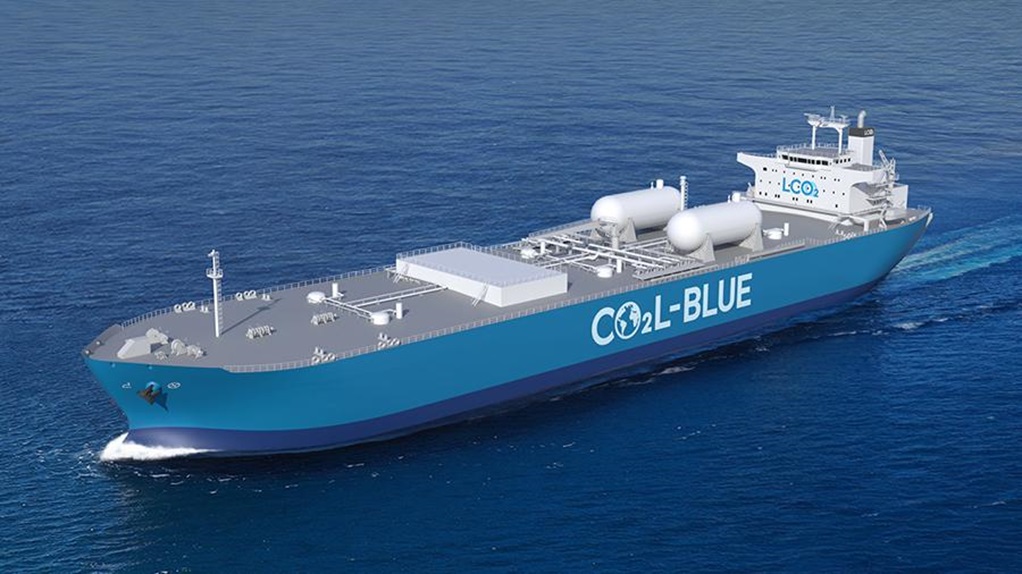Mitsubishi Shipbuilding, a part of Mitsubishi Heavy Industries (MHI) Group and Nihon Shipyard Co., Ltd., a Tokyo-based joint venture for ship design and sales between Imabari Shipbuilding Co., Ltd. and Japan Marine United Corporation, have signed an MOU with Mitsui & Co., Ltd. and Mitsubishi Corporation on the collaborative study for ocean-going liquified CO2 (LCO2) carriers to realize large-scale international transportation in Japan initiated CCS (Carbon dioxide Capture and Storage) from 2028 onwards. The four companies will proceed with this initiative aiming to apply it at the future commencement of CCS business led by the Japanese government.
Japan Organization for Metals and Energy Security (JOGMEC) launched a feasibility study on Japanese Advanced CCS Project, as a public offered project in FY2023. Demand for LCO2 carriers is expected to increase in the near future to transport captured CO2 from Japan to storage areas in various CCS projects. It is very important to standardize the specification and design of LCO2 carriers across each project as well as to establish a realistic production supply chain so that LCO2 carriers will be constructed and supplied stably in Japan and CCS value chain will be achieved with improved economic efficiency. The signed MOU suggests that four companies have agreed to make a collaboration to solve these issues related to the construction of LCO2 carriers and marine transportation, starting with Japan initiated CCS projects to the Asia-Pacific region.
Mitsubishi Shipbuilding and Nihon Shipyard have already begun joint study to build LCO2 carriers, demands for which are expected to increase in the near future, by making the most of their strengths while mutually complementing each other.
Mitsui & Co., Ltd. and Mitsubishi Corporation, who are now advancing business development for early launch of the CCS business, are selected as leading companies in the Japanese Advanced CCS Project by JOGMEC aiming for overseas CO2 storage.
MHI Group is pursuing strategic measures to strengthen its business for the energy transition. Mitsubishi Shipbuilding, for its role in this initiative, efforts to contribute the advance of the maritime industry in Japan and around the world by utilizing its shipbuilding-based marine engineering technologies in addition to conventional shipbuilding. Mitsubishi Shipbuilding will actively promote the development of LCO2 carriers and establishment of CCS value chain through collaboration with various domestic/overseas companies, and also construction of demonstration ship for transport of LCO2 for New Energy and Industrial Technology Development Organization (NEDO).
Nihon Shipyard is actively working on commercialization of LNG and ammonia fueled ships as preparation of upcoming strengthening of GHG emission regulations. As the next initiative, the company is contributing to realize a sustainable carbon neutral society by delivering LCO2 carriers essential for establishment of CCS value chain.
Source: Mitsubishi Shipbuilding.
Tags: CC2 Business, CO2 carriers, Mitsubishi Shipbuilding, MOU



Recent Posts
Greenlyte and MB Energy sign strategic e-methanol offtake agreement
CSDC and TECHNOLOG forge alliance to drive green, smart shipbuilding
DPA Kandla invites bids for India’s first port-based bio-methanol plant
Green & Digital Maritime Corridors Dialogue’ at JNPA sets stage for India Maritime Week 2025
Thermax partners with HydrogenPro for alkaline electrolyser systems in India
PIL Conducts First Simultaneous Cargo and LNG Bunkering in Singapore
NYK Takes Delivery of LNG-Fuelled Capesize Bulker SG Dawn
Swire Shipping joins Achilles Maritime Network to strengthen supply chain sustainability and compliance